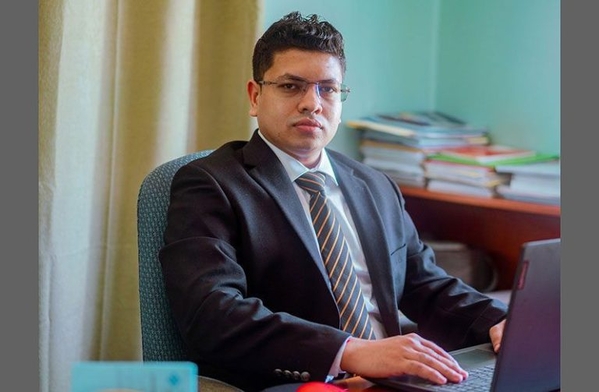April 4 ,2022
– Financial Analyst says less than 5 percent of labour force has tertiary education
Kaieteur News – During a recent discussion on the US$1.3B gas-to-shore project, Financial Analyst, Joel Bhagwandin, stated that despite Guyana being blessed with bountiful resources, what the country lacks are the critical human resources, which he highlighted is a deterrent to the country’s development.
The gas-to-shore project is one of the major projects Guyana has embarked on. The project was first touted as a US$900M inclusive of a gas pipeline, a gas fired power plant, and related processing facilities, but Budget 2022 has confirmed this to be untrue and has in fact now confirmed a new price tag in excess of US$1.3B.
The government has since committed to providing some $520M in total, towards the gas-fired power plant and has since allocated US$20M towards the project. On Tuesday last night, Bhagwandin was one of the three panelists on an OilNow discussion on the project.
The financial analyst first talked about the potential benefits of the project. He said, “one of the main benefits of the project is cheaper energy and reliable energy to improve a more competitive economy.” He further noted that with the little information in the public domain on the project, there is not much that can be said on certain aspect of the project. “None of us on this panel can analyze the risks and mitigation strategies that are associated with this project,” Bhagwandin added.
In giving further sentiments he said, “We have another bigger problem…often times when commentators speak about Guyana in the context of an oil economy, we are being compared to Dubai and Singapore and so forth.”Bhagwandin explained that while Singapore was not blessed with the natural resources Guyana has to date, that country is approximately 20 times richer than Guyana. He pointed out that the reason for that is owed to Singapore’s human resources. According to him, one reason for Guyana not having people resources is owed to political instability. “People fled, people fled because of the lack of opportunities,” he further pointed out.
Bhagwandin then added, “So to validate this argument that I am putting forward here, if you look at our last labour force survey, less than 5 percent of our labour force have an education at the tertiary level.”The financial analyst further noted that based on the survey, it gives you an idea of the quality of Guyana’s labour force. As such, he pointed out that if the country does not have more of its citizen being educated at a certain level – it will be a bigger deterrent to Guyana’s development.
Moreover, in a recent Inter-American Development Bank (IDB) report titled: Traversing a Slippery Slope: Guyana’s Oil Opportunity, the IDB experts noted that while the number of Guyanese with formal training in oil and gas policy, economics, management, law, and engineering has increased in recent times, the level of technical expertise and institutional leadership required to effectively ensure the maximization of economic and social returns from the resources remains at a nascent level.The bank said developing the capabilities to manage and regulate an oil producing contract will surely overlap with those required for other oil blocks currently under exploration, as well as other transcendental capacities to be handled by the government, such as rights (license) management, long-term gas commercialization, and marketing of the government’s share of oil production. It said this situation therefore increases the risks of delays and value erosion during oversight activities and heightens the probability of lower social returns.


